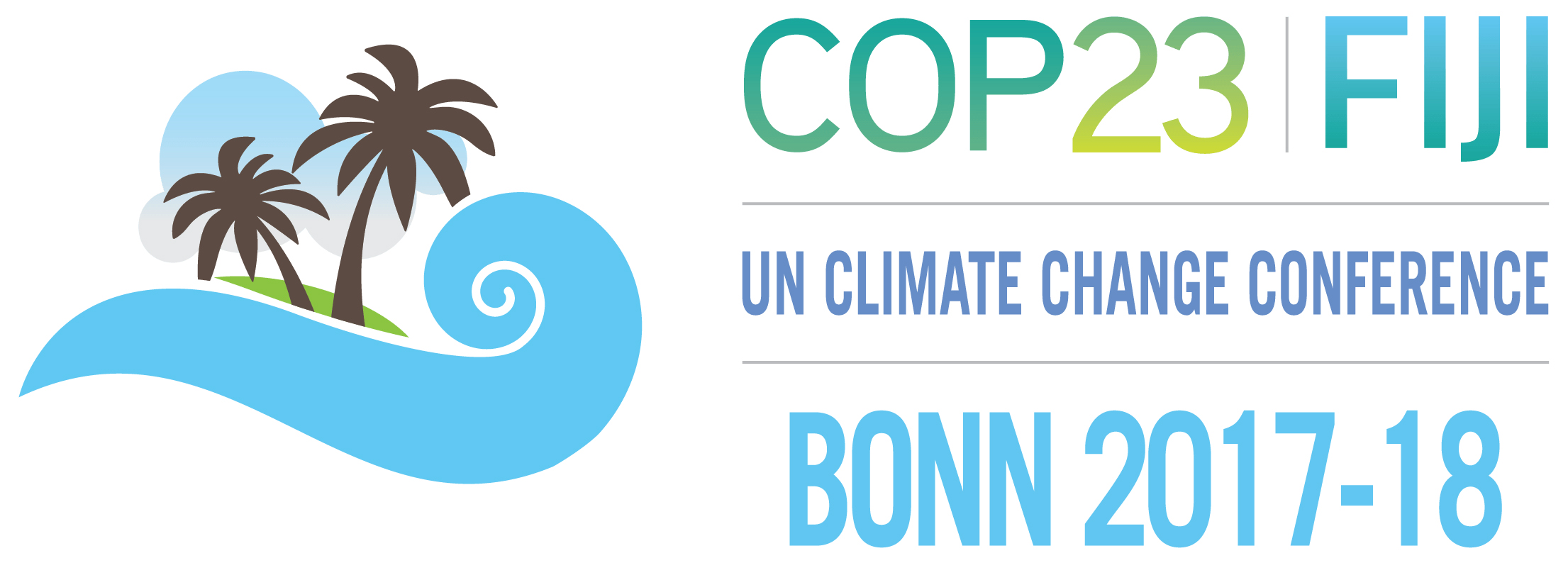COP23 in Bonn
In November 2017 the United Nations World Climate Conference was held, for the first time under the presidency of a small Pacific island nation (Fiji).

In 2017, the annual World Climate Conference of the United Nations took place from 6 to 18 November in Bonn. The Presidency was for the first time held by a small island nation located at low altitude above sea level, Fiji, in the person of its Prime Minister, Josua Bainimarama. Germany hosted the Conference.
As is the case every year, de facto six conferences were held in parallel: The 23rd Conference of the Parties (COP23) to the United Nations Framework Convention on Climate Change (UNFCCC), the 13th Conference of the Parties serving as the meeting of the Parties to the Kyoto Protocol (CMP13) and the second part of the first session of the Conference of the Parties to the Paris Agreement (CMA 1.2). In addition, the sessions of the Subsidiary Body for Scientific and Technological Advice (SBSTA 47) and the Subsidiary Body for Implementation (SBI 47) took place. The Ad Hoc Working Group on the Paris Agreement met for the fourth part of its first session (APA 1.4).
The opening speeches emphasised the urgency of action against climate change which, according to most recent figures, is stronger than ever. The atmospheric CO2 concentration has exceeded the 400 ppm level (150 years ago it was about 270 ppm); in 2016 the annual increase of the concentration was with 3.3 ppm the highest ever recorded. Average global temperatures have already risen by 1.1 degrees Celsius above pre-industrial levels. The Intergovernmental Panel on Climate Change (IPCC) starts work on its Sixth Assessment Report regarding climate change.
Holding the Presidency of the conference, Fiji played a crucial role in balancing the different interests of the country groups. The elements for the Paris Agreement Work Programme were fixed and it was decided to adopt the complete package of the implementing decisions on the role of the Adaptation Fund under the Paris Agreement, on future co-financing and the structure of the “Talanoa Dialogue“ for 2018 in the year following the Conference. One of the results of special importance for the Fiji Presidency was the official launch of the Talanoa Dialogue – a political roadmap with the priorities for 2018.
Apart from the elements of the Paris Work Programme, a few other results should be pointed out, in particular a decision to continue work on the Loss & Damage topic, the adoption of a Gender Action Plan, the operationalisation of the Indigenous Peoples Platform as well as – after five years of negotiation – a decision for the implementation of climate policy measures in the agricultural sector taking into account food safety.
Once again, the Climate Conference brought together a substantial number of participants – more than 27,000. The concept of “one conference, two zones” proved effective; while about 18,000 delegates were involved in the negotiations, almost 10,000 persons were registered for the so-called “Bonn Zone” – an information hub with the participation of representatives from politics, economy and science.
The results of the Conference of Bonn provide a sound basis for future negotiations which are to produce an overall result concerning the implementation of the Paris Agreement at the next World Climate Conference, scheduled to take place in December 2018 in Katowice, Poland. Holding the EU Presidency during the second half of 2018, Austria will play a responsible role in the negotiations to come.